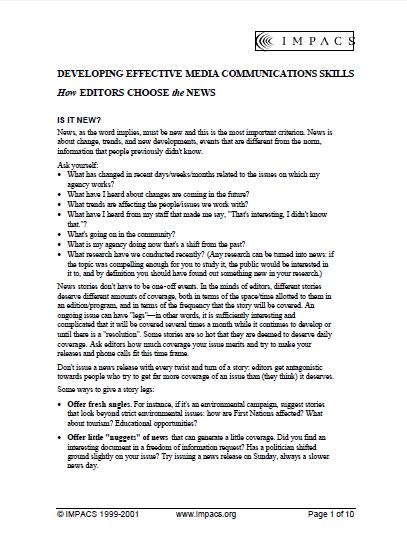Is it new?
News, as the word implies, must be new and this is the most important criterion. News is about change, trends, and new developments, events that are different from the norm, information that people previously didn’t know.
Ask yourself:
- What has changed in recent days/weeks/months related to the issues on which my agency works?
- What have I heard about changes are coming in the future?
- What trends are affecting the people/issues we work with?
- What have I heard from my staff that made me say, “That’s interesting, I didn’t know that.”?
- What’s going on in the community?
- What is my agency doing now that’s a shift from the past?
- What research have we conducted recently? (Any research can be turned into news: if the topic was compelling enough for you to study it, the public would be interested in it to, and by definition you should have found out something new in your research.)
News stories don’t have to be one-off events. In the minds of editors, different stories deserve different amounts of coverage, both in terms of the space/time allotted to them in an edition/program, and in terms of the frequency that the story will be covered. An
ongoing issue can have “legs”—in other words, it is sufficiently interesting and complicated that it will be covered several times a month while it continues to develop or until there is a “resolution”. Some stories are so hot that they are deemed to deserve daily coverage. Ask editors how much coverage your issue merits and try to make your releases and phone calls fit this time frame.
Don’t issue a news release with every twist and turn of a story: editors get antagonistic towards people who try to get far more coverage of an issue than (they think) it deserves.





